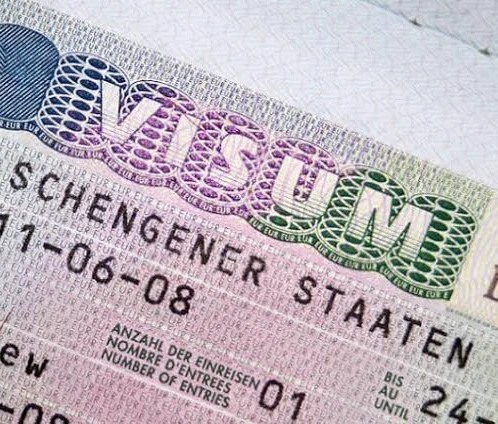Schengen visa price hike
Schengen visa price hike might cause you to pay more in 2024 to go to the EU or European Union for work or Tourism.

The European Commission is working on a proposal to raise the baseline price for a Schengen visa starting in 2024.
If approved, the price for adults will increase by 12%, from €80 to €90, and for children, from €40 to €45.
Additionally, the EU intends to increase the cost still further for nations exhibiting “insufficient cooperation on readmission,” a term that describes allowing the re-entry of those who have been expelled from member states.
Citizens of non-EU nations who are not eligible for the 90-day visa-free period within the EU and Schengen area must get a Schengen visa.
People from China, India, Pakistan, Sri Lanka, and South Africa are among them.
The price hike might occur within the next few months if all goes well for the policy.
What is the likely cost of a Schengen visa in 2024?
Following a meeting in December when experts from member states approved the change with a overwhelming majority.
The European Commission unveils a draft of the proposed increase in the Schengen visa cost on February 2.
Feedback on the initiative is welcome until March 1st.
EU citizens have this period to voice their thoughts and indicate whethmuer or not they agree with the idea.
The EU can then put the modifications into effect and they will take effect 20 days following the passing of the bill in the European Union’s Official Journal.
Among them are citizens of China, India, Pakistan, Sri Lanka and South Africa.
Note that in the next months if the idea is approved, prices may rise.
The Commission says that the EU’s increasing rate of inflation is the reason behind the planned price increase.
Every three years, the organisation reviews the Schengen visa cost.
In 2024, Bulgaria and Romania will join the Schengen area, so what will be different for travellers?
The Schengen zone countries no longer have air border controls, making it easier for Tourists to fly into Croatia.
Should it proceed, adult visa fees will increase from €80 to €90, while children’s fees would increase from €40 to €45.
In the event that nations fail to exhibit cooperation in the context of citizen readmission, the fee will rise from €120 to €135 and from €160 to €180.
External Schengen Visa providers
Furthermore, the Commission suggests allowing outside companies that grant Schengen visas to raise their prices in accordance with the amendment.
External providers, such visa companies, that gather applications for Schengen visas on behalf of member states are often only allowed to charge a maximum of half of the regular fee.
The Commission suggests increasing this by €45 from €40.
On the other hand, a Schengen visa extension will continue to cost €30.
EU will launch a digital-only Schengen visa.
The introduction of a digital-only Schengen visa, which was deliberated in 2022, has also been announced by the EU.
Regardless of the nation they intend to Tour, travellers will have the option to apply online.
The existing passport sticker system will be replaced by a digital version.
According to the European Commission, the digital platform should be launched by 2028.
Does entering the EU require a Schengen visa?
For nationals of non-EU nations who do not qualify for the 90-day rule, a Schengen visa is necessary.
The Schengen visa is required for citizens of certain nations, such as China, India, Pakistan, Sri Lanka, and South Africa.
It allows visitors to remain in 28 European nations for up to 90 days for Tourism or family visits.
Citizens of the United Kingdom, Canada, the United States, and Australia are exempt from applying for a Schengen visa.
Compiled by
World Travel News, Gorilla Trekking Uganda and Gorilla Trekking Rwanda


